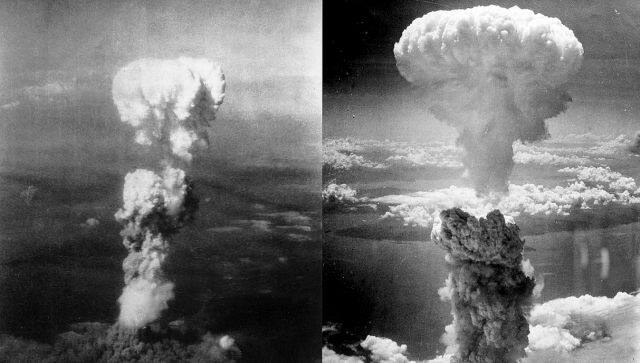They are calling it Christopher Nolan’s finest work. Oppenheimer, the biopic on J Robert Oppenheimer, the man behind the world’s first atomic bomb, is keeping cash registers ringing across the world. Indians, too are thronging to the theatres, with the film earning Rs 31.5 crore in two days. Oppenheimer’s connection to Hinduism has further piqued the interest of movie-goers in the country. The theoretical physicist was fascinated with religion and the Bhagavad Gita and in the run-up to the release there was a lot of chatter about these aspects of his personality. However, it was unclear if the Nolan film would weave them in. Turns out, the holy book does feature in _Oppenheimer_ but now some Indians are seething. Also read: Who was Oppenheimer? What was his link to Hinduism? Anger over controversial sex scene A scene in the film shows Robert Oppenheimer, played by Cillian Murphy , having sex while reading the Gita. The use of the sacred text during an intimate scene has angered government officials. Union Minister of Information and Broadcasting Anurag Thakur on Monday pulled up the censor board over ‘objectionable’ content. Questioning how it was okayed by the film certification body, Thakur has asked for the scene to be deleted from the film. Sources say action could be initiated against some officials who are seen as responsible for it, according to NDTV. Uday Mahurkar, information commissioner with the Government of India, and founder of the Save Culture Save India Foundation, questioned how the Central Board of Film Certification (CBFC) could approve the movie with a sex scene with the Gita. “One is perplexed as to how the Central Board of Film Certification (CBFC) could approve the movie with this scene,” said Mahurkar, sharing a press statement by the Foundation. “We are living in a very polarised world. This should be investigated by I&B Ministry on an urgent basis and those involved should be severely punished,” read the press release. It demanded the scene to be removed from the film not only in India but across the world.
MOVIE OPPENHEIMER’S ATTACK ON BHAGWAD GEETA
— Uday Mahurkar (@UdayMahurkar) July 22, 2023
Press Release of Save Culture Save India Foundation
Date: July 22, 2023
It has come to the notice of Save Culture Save India Foundation that the movie Oppenheimer which was released on 21st July contains scenes which make a scathing… pic.twitter.com/RmJI0q9pXi
Others called for a boycott of the film. Harris Sultan, author of the book The Curse of God: Why I Left Islam said, “Hindus have been celebrating the mention of the Bhagwad Gita in the Oppenheimer movie, but they are left angry and perplexed at the blatant disrespect of the Gita by Hollywood. Mentioning holy verses while having sex is considered disrespectful and racist.” Oppenheimer is Nolan’s first R-rated movie in 20 years. In India, the censor board gave the film a U/A rating, after the studio cut some scenes to reduce their length. [caption id=“attachment_12906732” align=“alignnone” width=“640”] This image released by Universal Pictures shows Cillian Murphy as Dr J Robert Oppenheimer in a scene from “Oppenheimer,” left, and physicist Dr J Robert Oppenheimer on the test ground for the atomic bomb near Alamogordo, on 9 September 1945. Universal Pictures via AP, and AP Photo[/caption] The quote from the Gita The controversial sex scene also shows Murphy quoting from the holy book. Oppenheimer’s fascination with Hindu texts, including the Gita, was a significant facet of his life. He is said to have famously quoted from the sacred book after the Trinity test of 1945, through which he created the first atomic bomb. Understanding the gravity of what he had just done, he is said to have thought to himself, “If the radiance of a thousand suns were to burst into the sky, that would be like the splendor of the Mighty One… I am become death, the destroyer of worlds.” The lines, it has been widely reported, are from the Gita. The quote appears in the Nolan film during the interaction between Murphy’s Oppenheimer and Florence Pugh’s Jean Tatlock, his psychiatrist. Mid-coitus, Pugh gets up and goes over to the bookshelf, picking up the copy of the Bhagavad Gita and asking Murphy to read from it. He reads the line, “I am become death, the destroyer of worlds,” and the intercourse continues. The words reappear later in the movie after the physicist witnesses the power of the atomic bomb he has created. Murphy again quotes from the scripture. The scenes, and much of the film, are based on historical records. [caption id=“attachment_12906752” align=“alignnone” width=“640”]
 Emily Blunt, Cillian Murphy and Florence Pugh pose for photographers upon arrival at the premiere of the film ‘Oppenheimer’ on 13 July in London. The sex scene features Murphy and Pugh. AP[/caption] Oppenheimer and the holy book While Oppenheimer watched the fireball of the Trinity nuclear test, he reportedly turned to Hinduism. He is said to have initially celebrated the achievement but after the bombing of Hiroshima and Nagasaki, he had a crisis of conscience. Twenty years after the attacks, he appeared in the 1965 NBC News documentary called “The Decision to Drop the Bomb”. Oppenheimer said, “We know the world would not be the same. A few people laughed, a few people cried, most people were silent.” He said he remembered a line from the Bhagavad Gita. “I remembered the line from the Hindu scripture, the Bhagavad Gita; Vishnu is trying to persuade the prince that he should do his duty, and to impress him, takes on his multiarmed form and says, ‘Now I am become Death, the destroyer of worlds.’ I suppose we all thought that, one way or another,” he said. The lines appear in verse 32 and are said by Lord Krishna, according to reports. Stephen Thompson, who has spent more than 30 years studying and teaching Sanskrit, told The Wired, “death” translates to “world-destroying time”, adding that Oppenheimer’s Sanskrit teacher chose to translate “world-destroying time” as “death,” a common interpretation. Its meaning is simple: Irrespective of what Arjuna does, everything is in the hands of the divine, the report says. [caption id=“attachment_12906782” align=“alignnone” width=“640”]
Emily Blunt, Cillian Murphy and Florence Pugh pose for photographers upon arrival at the premiere of the film ‘Oppenheimer’ on 13 July in London. The sex scene features Murphy and Pugh. AP[/caption] Oppenheimer and the holy book While Oppenheimer watched the fireball of the Trinity nuclear test, he reportedly turned to Hinduism. He is said to have initially celebrated the achievement but after the bombing of Hiroshima and Nagasaki, he had a crisis of conscience. Twenty years after the attacks, he appeared in the 1965 NBC News documentary called “The Decision to Drop the Bomb”. Oppenheimer said, “We know the world would not be the same. A few people laughed, a few people cried, most people were silent.” He said he remembered a line from the Bhagavad Gita. “I remembered the line from the Hindu scripture, the Bhagavad Gita; Vishnu is trying to persuade the prince that he should do his duty, and to impress him, takes on his multiarmed form and says, ‘Now I am become Death, the destroyer of worlds.’ I suppose we all thought that, one way or another,” he said. The lines appear in verse 32 and are said by Lord Krishna, according to reports. Stephen Thompson, who has spent more than 30 years studying and teaching Sanskrit, told The Wired, “death” translates to “world-destroying time”, adding that Oppenheimer’s Sanskrit teacher chose to translate “world-destroying time” as “death,” a common interpretation. Its meaning is simple: Irrespective of what Arjuna does, everything is in the hands of the divine, the report says. [caption id=“attachment_12906782” align=“alignnone” width=“640”] Atomic bomb mushroom clouds over Hiroshima and Nagasaki. At first, Oppenheimer celebrated the bombings but later had a crisis of conscience. File photo/Wikimedia Commons[/caption] ‘Flawed translation’ While the quote has grabbed headlines for the controversial scene it appears in, Indian mythological writer Devdutt Pattanaik said that he wasn’t familiar with it at all. He told The Indian Express, “I did some research on Oppenheimer, and I had never come across this line… Someone said it was chapter 11, verse 32, which really says ‘kaal-asmi’, which means ‘I am time, destroyer of the world’. So, his translation itself is flawed. It is not ‘I am death’. It is time, time is the destroyer of the world.” The jury is still out on the quote used by Oppenheimer. But his connection to the Gita cannot be denied. He kept a copy of the book, bound in pink and held together with scotch tape, in his study in Princeton. He read the scriptures for his ‘personal delight’ in the evenings, and sometimes to entertain friends while he was at Berkeley, which is where he also took lessons in Sanskrit from resident expert Arthur W Ryder, a 1948 article in TIME magazine says. Even actor Murphy read the book in preparation. “I thought it was an absolutely beautiful text, very inspiring,” he told film critic Sucharita Tyagi in an interview. “I think it was a consolation to him [Oppenheimer], he kind of needed it and it provided him a lot of consolation, all his life.” With inputs from agencies
Atomic bomb mushroom clouds over Hiroshima and Nagasaki. At first, Oppenheimer celebrated the bombings but later had a crisis of conscience. File photo/Wikimedia Commons[/caption] ‘Flawed translation’ While the quote has grabbed headlines for the controversial scene it appears in, Indian mythological writer Devdutt Pattanaik said that he wasn’t familiar with it at all. He told The Indian Express, “I did some research on Oppenheimer, and I had never come across this line… Someone said it was chapter 11, verse 32, which really says ‘kaal-asmi’, which means ‘I am time, destroyer of the world’. So, his translation itself is flawed. It is not ‘I am death’. It is time, time is the destroyer of the world.” The jury is still out on the quote used by Oppenheimer. But his connection to the Gita cannot be denied. He kept a copy of the book, bound in pink and held together with scotch tape, in his study in Princeton. He read the scriptures for his ‘personal delight’ in the evenings, and sometimes to entertain friends while he was at Berkeley, which is where he also took lessons in Sanskrit from resident expert Arthur W Ryder, a 1948 article in TIME magazine says. Even actor Murphy read the book in preparation. “I thought it was an absolutely beautiful text, very inspiring,” he told film critic Sucharita Tyagi in an interview. “I think it was a consolation to him [Oppenheimer], he kind of needed it and it provided him a lot of consolation, all his life.” With inputs from agencies


)

)
)
)
)
)
)
)
)



